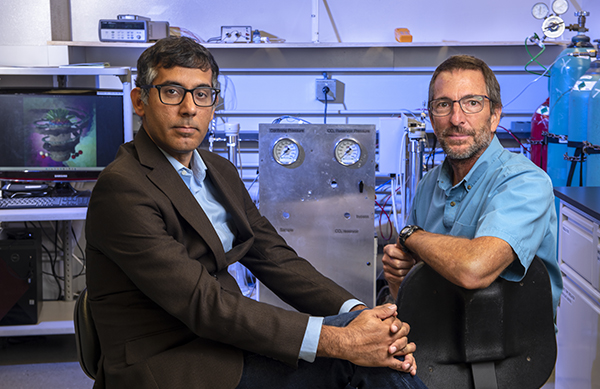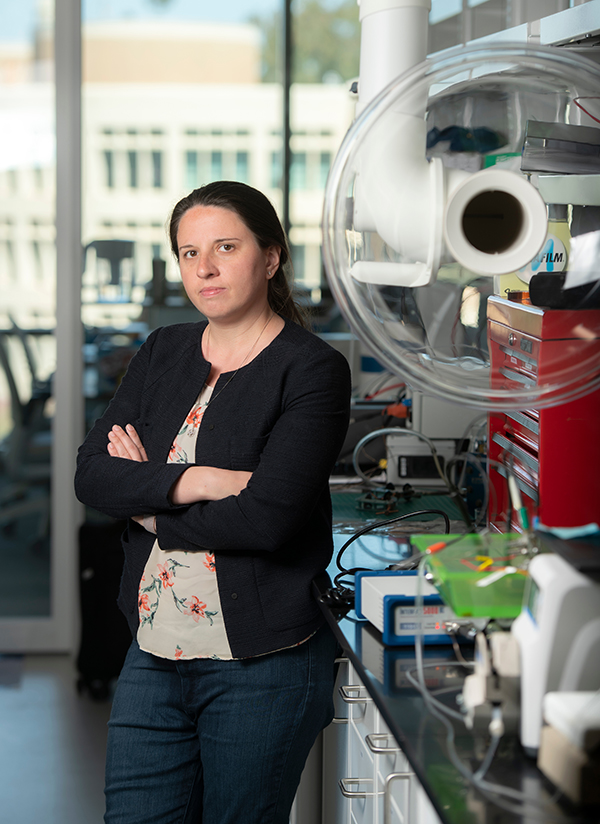Three Engineering Researchers Involved in Energy Earthshot Projects

Oct. 11, 2023 - Three engineering faculty – Russell Detwiler, M.J. Abdolhosseini Qomi and Iryna Zenyuk – are participating in projects funded by the U.S. Department of Energy’s Energy Earthshots Initiative to accelerate innovations toward more abundant, affordable and reliable clean energy solutions.
The DOE announced $264 million in funding for 29 projects, supporting 11 new Energy Earthshot Research Centers led by DOE National Laboratories and 18 university research teams. There are seven Energy Earthshots, and the UCI faculty are collaborators in two of the Earthshots: the Enhanced Geothermal Shot and the Hydrogen Shot. The DOE launched the initiative to spur decarbonization efforts that will help the United States meet President Biden’s ambitious climate and clean energy goals, including a 50% reduction in carbon emissions by 2030 and a net-zero carbon economy by 2050.
“We are very excited and proud to see our faculty’s expertise being sought after in these hugely important efforts toward clean energy technologies and decarbonization,” said Efi Foufoula-Georgiou, associate dean for research and innovation in the Samueli School of Engineering. “The momentum built from these collaborative projects will position UCI well for future efforts and will create career paths for our students.”
Center for Understanding Subsurface Signals and Permeability

Three DOE national labs and seven universities are involved in the new Center for Understanding Subsurface Signals and Permeability (CUSSP). Led by Pacific Northwest National Lab, the CUSSP will advance geothermal systems with the goal of making them a widely accessible and reliable source of renewable energy. CUSSP aims to predict and control how water flows through hot rock formations in the subsurface through complex simulations, laboratory experiments and accurate field measurements.
Detwiler and Qomi, both associate professors in civil and environmental engineering, are co-principal investigators for the center and will receive nearly $2 million over four years for their work on the project. Qomi will lead molecular and mesoscale simulations to understand complex chemical reactions at the rock-fluid interfaces and the footprint these reactions leave on electrical sensing signals. Detwiler will lead laboratory experiments in fractured rock cores and micromodels to quantify chemical reactions including mineral dissolution and precipitation, and their influence on permeability and electrical resistivity. Their combined efforts will help motivate and interpret field experiments at the Sanford Underground Research Facility in South Dakota.
Center for Ionomer-based Water Electrolysis

Two DOE national labs and six universities are part of the new Center for Ionomer-based Water Electrolysis (CIWE). Led by the Lawrence Berkeley National Lab, CIWE aims to improve hydrogen generation by analyzing the use of ion-conducting polymers (ionomers) for low-temperature electrolysis, the process of generating hydrogen from water by applying electricity. The project combines advanced characterization and modeling for a fundamental understanding of how the morphology and chemistry of ionomer interfaces can affect the durability and efficiency of water electrolyzers under realistic operating conditions.
Zenyuk, associate professor of chemical and biomolecular engineering and director of the UCI National Fuel Cell Research Center, will serve as a characterization thrust lead on the project. She will receive $870,000 over four years for her research focused on furthering fundamental understanding of interfaces and dynamic processes in water electrolyzers.
– Lori Brandt
